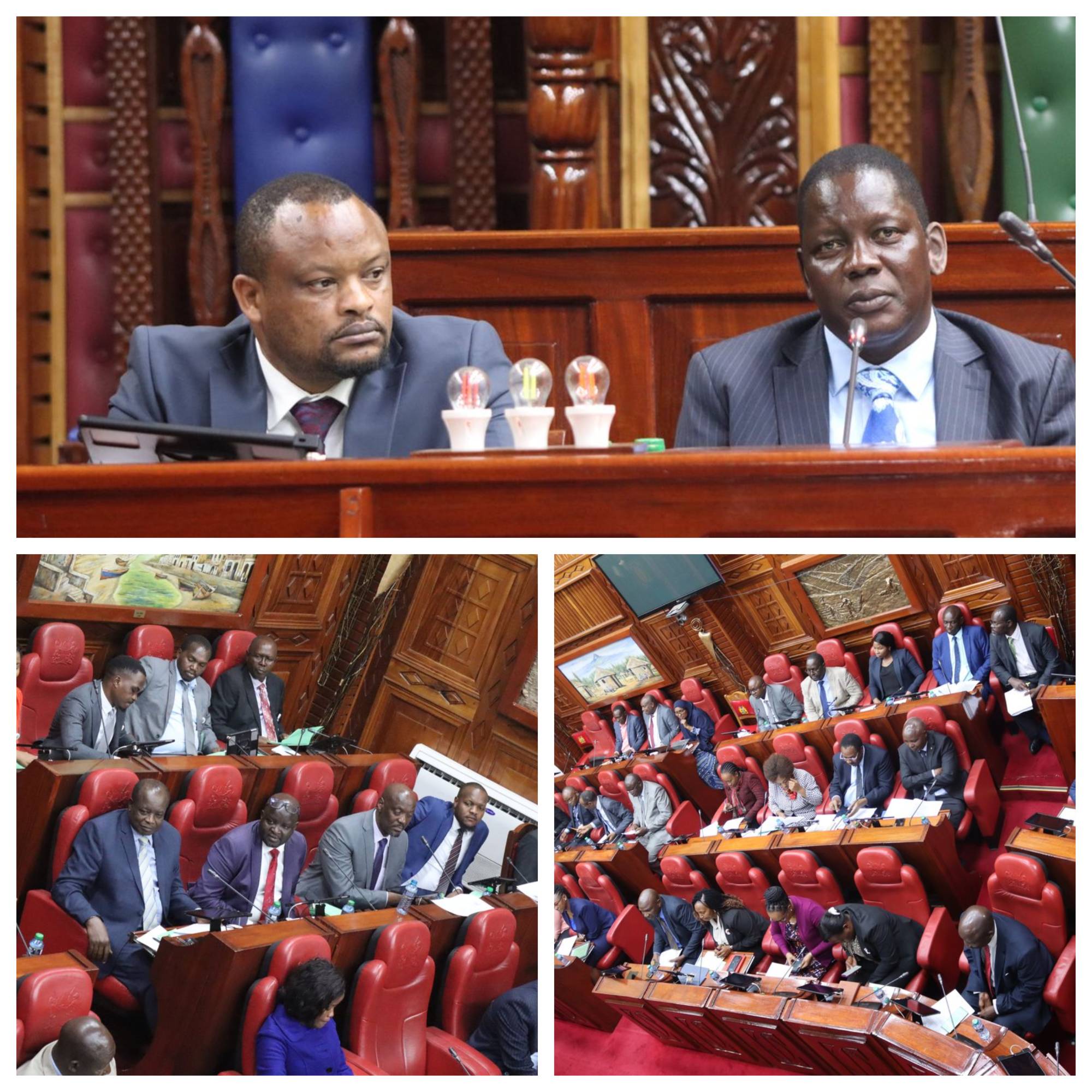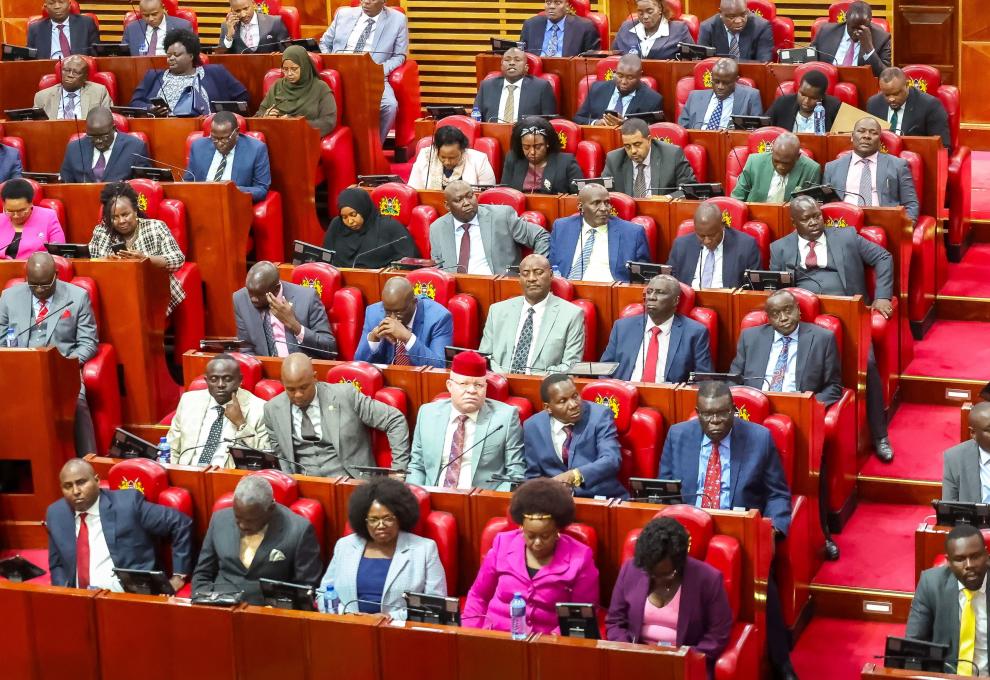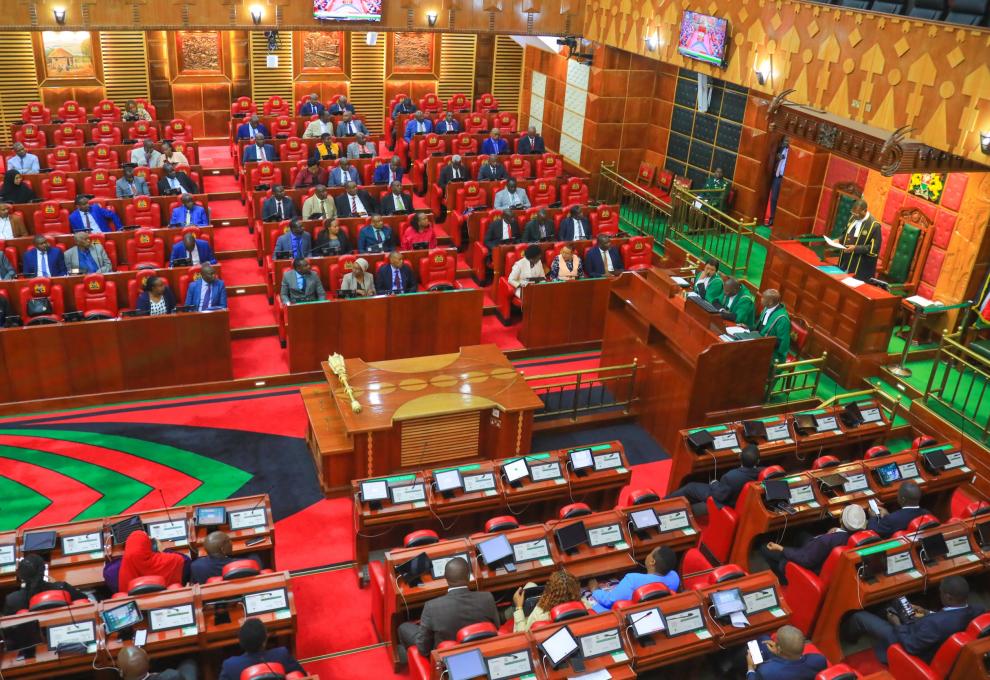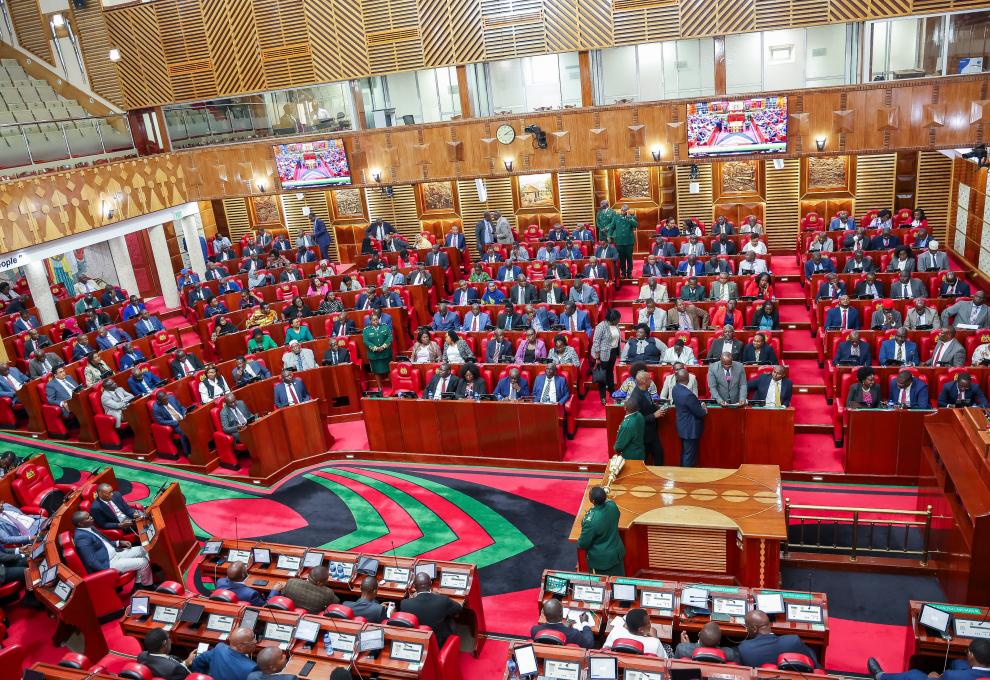𝗦𝗔𝗙𝗘𝗚𝗨𝗔𝗥𝗗𝗜𝗡𝗚 𝗖𝗢𝗡𝗦𝗨𝗠𝗘𝗥𝗦; 𝗔𝗚𝗥𝗜𝗖𝗨𝗟𝗧𝗨𝗥𝗘 𝗔𝗡𝗗 𝗛𝗘𝗔𝗟𝗧𝗛 𝗖𝗢𝗠𝗠𝗜𝗧𝗧𝗘𝗘𝗦' 𝗘𝗡𝗚𝗔𝗚𝗘 𝗪𝗜𝗧𝗛 𝗦𝗧𝗔𝗞𝗘𝗛𝗢𝗟𝗗𝗘𝗥𝗦 𝗢𝗡 𝗙𝗢𝗢𝗗 𝗔𝗡𝗗 𝗙𝗘𝗘𝗗 𝗦𝗔𝗙𝗘𝗧𝗬 𝗖𝗢𝗢𝗥𝗗𝗜𝗡𝗔𝗧𝗜𝗢𝗡 𝗖𝗢𝗡𝗧𝗥𝗢𝗟 𝗕𝗜𝗟𝗟
The National Assembly Committee on Health and the Committee on Agriculture and Livestock jointly conducted a meeting with various stakeholders to discuss the Food & Feed Safety Co-ordination Control Bill. The session was co-chaired by Hon. Dr. Robert Pukose, the Chair of the Health Committee, and Hon. Brighton Yegon, the Vice Chair of the Agriculture and Livestock Committee.
During the meeting, Members of the Committees recurved submissions from stakeholders representing led by Ms. Mary Muthoni, Principal Secretary, Public Health and Professional Standards, Ms. Esther Ngari, Acting CEO, Kenya Bureau of Standards, Ms. Mary Mwiti, CEO Council of Governors, and officials from the Kenya Plant Health Inspectorate Service, Agriculture Food Authority, and Kenya Pest Control Products Board.
The Council of Governors CEO, Ms. Mary Mwiti submitted that the Council of Governors' supports the Food & Feed Safety Co-ordination Control Bill.
On her part, Kenya Bureau of Standards Acting CEO Ms. Esther Ngari, highlighted the role of the Kenya Bureau of Standards, was particularly emphasized. Stakeholders acknowledged that adherence to international standards, such as the International Codex, would help create a robust regulatory framework for food and feed safety, thereby boosting Kenya's competitiveness in the export of horticulture, food, and feed products.
During the meeting Lawmakers' recognized the importance of having a comprehensive regulatory framework that aligns Kenyan standards with international norms while catering to the specific needs of the country.
"We must have regulations that meet Kenyan Food and Feed Safety Control Co-ordination standards and International Market standards to remain competitive in exports of Horticulture and other Food and Feed related Exports," stated Konoin MP, Hon. Brighton Yegon.
However, Members also acknowledged the complexity of addressing different requirements and standards among different countries. Members of the National Assembly emphasized the need to strike a balance between setting food safety standards and allowing flexibility to accommodate diverse needs.
Seme MP Dr. James Nyikal, highlighted the complexity arising from the coexistence of Kenyan standards, international standards, and even more stringent private standards like those set by the European Union. Balancing these various standards while ensuring consumer safety remains a challenge.
Regarding coordination of regulatory agencies involved, Members of the Joint Committee recognised to avoid redundancy and promote efficient regulation, the importance of having a unified regulatory framework. They expressed concerns about potential duplication of efforts if each county were to have its own unique regulations.
During the meeting the efficacy of existing bodies responsible for food and feed safety standards came under scrutiny as well. Members of the Joint Committee underscored instances of consumer products being released for consumption and later found defective were cited as examples of potential shortcomings in the system.
Further submissions by stakeholders revealed that the Food & Feed Safety Co-ordination Control Bill aims to involve Food Business Operators by having regulators conduct frequent inspections to ensure compliance with safety standards. This proactive approach is intended to mitigate risks and protect consumers.
Members of the Committee on Agriculture and Livestock and the Health Committee are expected to review submissions and prepare a comprehensive report which will be tabled in the coming weeks.
















